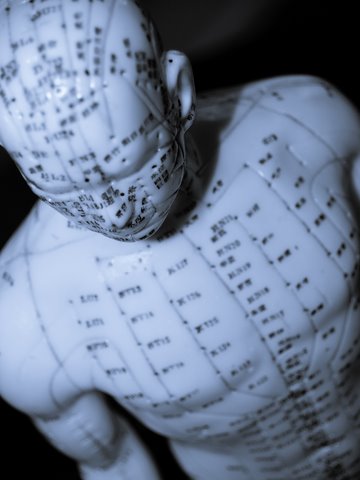This informative article is from The Examiner.com
Scientific validation of acupuncture – the science of alternative medicine part IV
By Tracey Planinz
Orlando Alternative Medicine Examiner
This week’s series has explored the science behind several alternative therapies, including herbs and homeopathy. Today’s focus is acupuncture. Acupuncture is part of a system of medicine from China dating back, by some accounts, 8,000 years. The Medical Classic of the Yellow Emperor, which is the basis for Traditional Chinese Medicine, is one of the oldest known medical texts. During an acupuncture treatment, the practitioner inserts fine needles along energy channels, called “meridians” to stimulate the flow of Qi – the body’s vital force.
Although the practice of acupuncture was used anciently in China and is still one of the main methods of treatment in China today, scientific research in this area has only begun to emerge over the past few decades. Studies and clinical trials are numerous, but many Western physicians and researchers question some of these trials, claiming there is insufficient evidence to support the use of acupuncture in complementary medicine. Additionally, some OMD’s and practitioners point out that some of the studies may be flawed. However, there are still a number of noteworthy trials which provide scientific validation for acupuncture. Below is a sample of recent research:
Chronic neck pain – A review published in 2006 by Kein Trinh, found that “individuals with chronic neck pain who received acupuncture reported, on average, better pain relief immediately after treatment and in the short-term than those who received sham treatments”.
Migraines – A review published in January of this year by Klaus Linde of the National Center for Complementary and Alternative Medicine showed, “there is consistent evidence that acupuncture provides additional benefit to treatment of acute migraine attacks only or to routine care”.
Insomnia – Another study from 2007 by Daniel Cheuk and his group found that, “Based on the findings from individual trials, the review suggested that acupuncture and acupressure may help to improve sleep quality scores when compared to placebo (95%)”.
Chemotherapy induced nausea/vomiting – In 2009 Jeanette Ezzo and a research group concluded that, “Electroacupuncture has demonstrated benefit for chemotherapy-induced acute vomiting”, and that “Self-administered acupressure appears to have a protective effect for acute nausea and can readily be taught to patients”. Although these were not compared to placebos, and further trials are needed.
Asthma – In a scientific review of the study of acupuncture for respiratory ailments, published in The Journal for Alternative and Complementary Medicine, by Dr. Kim Jobst”…Dr. Jobst re-evaluated the “Sham” treatment [and] he says 80% of the research shows acupuncture may work”. He also noted that acupuncture as a treatment was safer than long-term use of medications.
Cancer associated pain – A remarkable study done in London, England in 1986, published by Drs. J. Filshie and D. Redman, reported the following; “The effect of acupuncture was assessed in 183 patients attending the Pain Clinic in a cancer hospital. Early results were promising with 82% of patients obtaining benefit for hours or days… Acupuncture was most helpful for vascular problems, muscle spasm and dyaesthetic problems. Acupuncture was significantly helpful for a number of patients with malignant pain problems”.
Acupuncture and assisted conception – Another promising study from 2008 by Dr. Ying Cheong in the UK, found that acupuncture was a beneficial treatment to aid women receiving fertility treatments, stating that, “acupuncture performed on the day of [embryo transfer] shows a beneficial effect on the live birth rate”.
While further studies are warranted, this sample demonstrates there are measurable, therapeutic benefits from the use of acupuncture. In recent news the United States Air Force has begun using acupuncture on soldiers and is now training military doctors to use it. Anyone who is seriously investigating alternatives to conventional medicine should consider acupuncture and TCM. An OMD may use acupuncture, herbs and other modalities as treatment options. Look for a practitioner who is an OMD or LAc.
to read the original post click here


